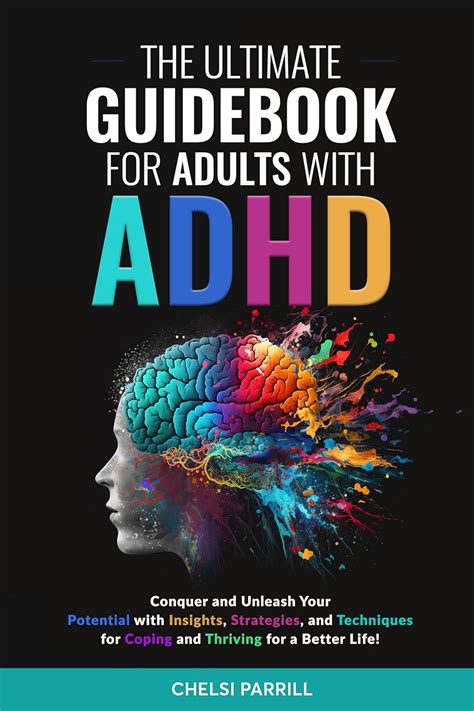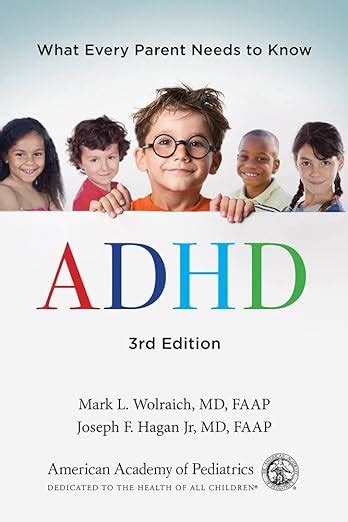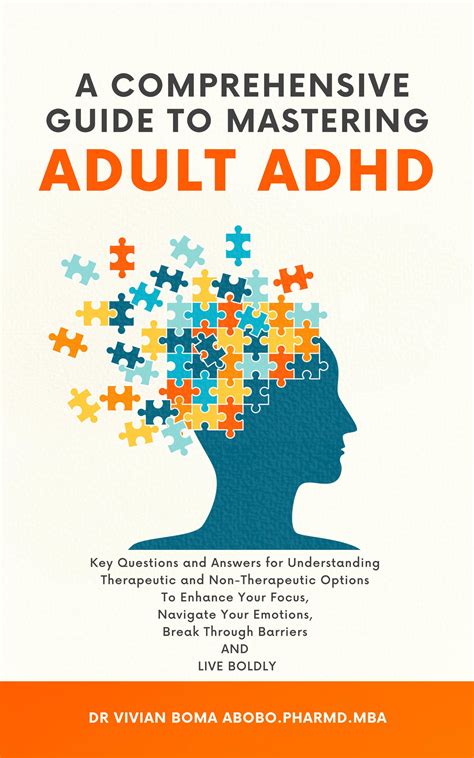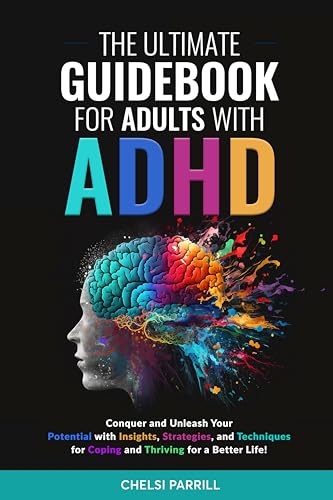Living with ADHD presents unique challenges that can make daily life feel overwhelming. From managing time effectively to staying organized, individuals with ADHD often struggle to maintain the focus and structure needed to thrive. Early diagnosis and intervention are crucial, but developing effective coping strategies is equally important. This article explores practical approaches to managing ADHD, from creating a structured routine and using time management techniques to adopting mindfulness practices and building a strong support network. By implementing these strategies and seeking professional help when needed, those with ADHD can navigate daily life more effectively and improve their overall well-being.
tirfblog.com will take you through an extensive exploration of this topic.
1. Understanding ADHD: Symptoms and Challenges
Attention Deficit Hyperactivity Disorder (ADHD) is a neurodevelopmental condition that affects people of all ages, from childhood to adulthood. Individuals with ADHD experience a range of symptoms, including inattention, hyperactivity, and impulsivity, the severity of which can vary greatly. These symptoms can significantly impact daily life, making it challenging for individuals to concentrate on tasks, adhere to instructions, and maintain organization. As a result, ADHD can lead to difficulties in academic, professional, and personal spheres.
Attention-Deficit/Hyperactivity Disorder (ADHD) is characterized by three core symptoms: inattention, hyperactivity, and impulsivity. Inattention manifests as difficulty maintaining focus on tasks or conversations, leading to frequent errors, missed deadlines, and challenges in completing projects. Hyperactivity involves excessive fidgeting, restlessness, and difficulty sitting still or remaining calm in situations demanding stillness. Impulsivity, the third core symptom, can lead to acting without considering consequences, interrupting others frequently, and making hasty decisions.
These symptoms can significantly disrupt daily life, impacting relationships, self-esteem, and overall well-being. Recognizing these symptoms is the first step in identifying ADHD and finding effective management strategies. This understanding ultimately empowers those affected to lead more balanced and fulfilling lives.

2. Importance of Early Diagnosis and Intervention
Early diagnosis and intervention are vital for managing ADHD effectively and minimizing its impact on daily life. Detecting ADHD at a young age enables timely support, helping individuals develop coping mechanisms before symptoms become deeply ingrained and disruptive. Children diagnosed early can benefit from customized educational plans, behavioral therapies, and, when necessary, medication. These interventions can significantly improve their ability to focus, learn, and interact with others.
Untreated ADHD can have serious consequences, leading to academic struggles, social difficulties, and emotional challenges like low self-esteem or anxiety. These issues can carry over into adulthood, exacerbating problems with job performance, relationships, and overall quality of life. Early diagnosis is crucial, as it allows for differentiation from other conditions with similar symptoms and ensures individuals receive the appropriate treatment.
Early intervention empowers parents and caregivers with the resources and knowledge to effectively support their child’s development. They gain insights into creating structured environments, setting appropriate expectations, and fostering positive behaviors. By addressing ADHD early on, individuals gain the tools to manage their symptoms, mitigating the risk of long-term difficulties and enhancing their potential for successful and fulfilling lives.

3. Creating a Structured Daily Routine
For individuals with ADHD, a structured daily routine is crucial. It fosters consistency and combats feelings of overwhelm. A well-organized routine brings predictability, easing time management and task completion. Without structure, ADHD can manifest as disorganization, missed deadlines, and elevated stress.
Building a successful daily routine requires dividing the day into manageable segments, allocating specific times for activities such as work, studying, exercising, and relaxation. Visual aids, like planners, calendars, or digital reminders, can strengthen the schedule and keep individuals on course. Prioritizing tasks by importance and urgency discourages procrastination and ensures that essential activities are completed.
Regular breaks and downtime are crucial for mental rest and preventing burnout. Integrating consistent sleep and meal times further reinforces a balanced lifestyle, promoting overall well-being. A structured routine creates a stable environment for individuals with ADHD, fostering focus, reducing anxiety, and enhancing productivity. This, in turn, leads to greater success in their daily lives.

4. Time Management Techniques for ADHD
Managing time can be a significant hurdle for people with ADHD. However, implementing specific techniques can empower them to stay organized and meet deadlines more effectively. One powerful strategy is to break down tasks into smaller, more manageable steps. By focusing on one task at a time, individuals can lessen the feeling of being overwhelmed by large projects, making it easier to maintain concentration and witness progress.
Another practical approach involves utilizing timers and alarms. By setting specific time limits for tasks, a sense of urgency is fostered, minimizing distractions. Techniques such as the Pomodoro Technique, which divides work into intervals with brief breaks, can boost productivity and maintain focus.
Effective time management hinges on prioritization. Starting each day with a to-do list that ranks tasks by importance and deadlines allows individuals with ADHD to focus on the most crucial items first. Digital apps and planners can further assist by tracking tasks and setting reminders, ensuring that no obligations slip through the cracks.
Time-blocking, another valuable strategy, involves setting aside dedicated blocks of time for specific activities or projects. This approach helps individuals allocate adequate time for crucial tasks while also ensuring opportunities for breaks and relaxation. By incorporating these time management techniques, individuals with ADHD can effectively manage their daily responsibilities, leading to greater success and reduced stress.
5. Organizational Strategies to Reduce Overwhelm
For individuals with ADHD, implementing organizational strategies is essential in mitigating the overwhelming feelings that often accompany the condition. A cluttered environment can amplify anxiety and impede focus. To create a more conducive environment, begin by decluttering physical spaces, keeping only necessary items readily accessible. Designate specific locations for frequently used objects, and utilize clear, labeled storage containers to maintain order and ensure that everything has its designated place.
Beyond physical organization, digital tools such as task management apps can simplify daily responsibilities. These apps enable the creation of categorized lists, prioritization of tasks, and progress tracking, facilitating efficient task management and ensuring nothing slips through the cracks.
By establishing a consistent routine for both physical and digital spaces, like dedicating a few minutes at the end of each day to tidying up, individuals with ADHD can maintain long-term order. Implementing these organizational strategies creates a more manageable and less overwhelming environment.
6. Mindfulness and Relaxation Practices
For individuals with ADHD, mindfulness and relaxation practices can be highly beneficial in calming the mind and boosting focus. Mindfulness, which involves non-judgmental observation of the present moment, can help reduce impulsivity and increase self-awareness. Techniques like deep breathing, guided meditation, and body scans can ground attention and alleviate the mental restlessness often experienced by those with ADHD.
Adding short, daily mindfulness exercises to your routine can have a major impact. Even just a few minutes of focused breathing or a mindful walk can help to clear your head and ease stress. With regular practice, these techniques can enhance your emotional control, making it simpler to manage distractions and stay focused.
Relaxation techniques, including progressive muscle relaxation and yoga, can also be helpful in managing ADHD symptoms. These activities alleviate physical tension, improve sleep quality, and foster a sense of tranquility. Integrating mindfulness and relaxation into daily routines allows individuals with ADHD to achieve increased mental clarity and emotional equilibrium.
7. Role of Nutrition and Exercise in Managing Symptoms
Nutrition and exercise are essential for managing ADHD symptoms, positively impacting overall health and cognitive function. A balanced diet featuring whole foods, like fruits, vegetables, lean proteins, and whole grains, promotes brain health and can enhance focus and attention. Omega-3 fatty acids, present in fish and specific seeds, are particularly valuable for cognitive function and mood regulation.
Regular physical activity plays a crucial role in managing ADHD. Exercise stimulates the release of neurotransmitters like dopamine and norepinephrine, which are often deficient in individuals with ADHD. Engaging in activities such as aerobic exercise, strength training, and even moderate daily movement can improve concentration, decrease hyperactivity, and mitigate stress levels.
Regular exercise and a balanced diet contribute to mood stability, improved sleep, and overall well-being, both mentally and physically. Integrating these healthy habits into daily life can empower individuals with ADHD to better manage their symptoms and enhance their quality of life.
8. Utilizing Technology and Tools for Support
Technology and tools play a vital role in managing ADHD symptoms by providing structure and support. A wide range of apps and digital resources are available to help individuals with ADHD stay organized, manage their time effectively, and monitor their progress. Task management apps, such as Todoist or Microsoft To Do, offer a valuable solution by enabling users to create and prioritize task lists, set deadlines, and receive timely reminders, ensuring that crucial tasks are not missed.
Calendar apps, equipped with scheduling features, streamline appointment and deadline management. Meanwhile, timers and alarms enhance focus and adherence to task time limits. The Pomodoro Technique, supported by apps like Focus Booster, promotes productivity by structuring work into intervals interspersed with scheduled breaks.
Furthermore, note-taking applications such as Evernote and Notion can assist in structuring thoughts and data, minimizing disarray and enhancing information retrieval. Digital planners and habit trackers provide visual representations of progress, which can serve as motivators and aid in establishing consistent routines.
By leveraging these technological tools, individua
9. Building a Strong Support Network
A strong support network is crucial for successfully managing ADHD and promoting overall well-being. This network encompasses family, friends, and professionals who possess an understanding of ADHD and can offer both encouragement and practical aid. Open communication with loved ones about the challenges and needs associated with ADHD cultivates understanding and fosters collaboration, simplifying the process of navigating daily life.
Support groups, both in-person and online, provide invaluable opportunities for individuals to connect with others facing similar challenges. These groups foster a sense of community, share effective coping strategies, and offer essential emotional support, helping individuals overcome feelings of isolation.
Engaging with professionals, such as therapists or ADHD coaches, can also be advantageous. These experts can provide personalized strategies, behavioral interventions, and guidance tailored to individual needs.
Building a network of support provides individuals with ADHD access to resources, encouragement, and practical assistance. This network
10. Seeking Professional Help and Therapy Options
Managing ADHD effectively and achieving long-term success often requires professional help and therapy. Psychiatrists, psychologists, and ADHD coaches are essential in diagnosing the disorder, providing treatment, and tailoring strategies to address individual challenges.
An accurate diagnosis of ADHD requires a thorough evaluation by a psychiatrist or psychologist, which is crucial to rule out other conditions that may present with similar symptoms. Once diagnosed, medication may be prescribed to help manage the condition. These medications, which include both stimulants and non-stimulants, work by regulating neurotransmitters, leading to improvements in focus, impulse control, and overall functioning. A healthcare provider will work with the individual to determine the most effective medication and dosage.
Besides medication, behavioral therapy offers valuable support for managing ADHD. Cognitive-behavioral therapy (CBT) helps individuals learn to modify negative thought patterns and behaviors, equipping them with practical tools for addressing their ADHD symptoms. ADHD coaching provides individualized guidance, assisting individuals in setting goals, crafting action plans, and developing effective coping mechanisms.
Therapists and coaches also work on strengthening executive function skills, including organization, time management, and emotional regulation. Regular therapy sessions provide ongoing support and allow for adjustments to treatment plans, ensuring that individuals with ADHD have the tools and guidance they need.
Managing ADHD effectively involves a multifaceted approach that includes understanding symptoms, creating structured routines, and adopting time management and organizational strategies. Incorporating mindfulness, proper nutrition, and exercise further supports symptom management, while leveraging technology and building a strong support network enhances daily functioning. Seeking professional help ensures tailored treatment and ongoing support. By integrating these strategies, individuals with ADHD can navigate daily challenges more effectively and lead fulfilling, balanced lives.
tirfblog.com

